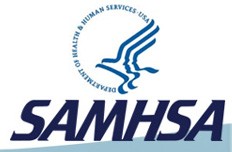
Local substance abuse prevention coalitions that strive to keep their communities safe, health, and drug-free can play an important role in your efforts to integrate primary care and behavioral healthcare. To demonstrate the ways in which they can work with healthcare providers for the greatest effect, CADCA (Community Anti-Drug Coalitions of America) and the SAMHSA-HRSA Center for Integrated Health Solutions (CIHS) developed Coalitions and Community Health: Integration of Behavioral Health and Primary Care. The report outlines how the nation’s 5,000+ community substance abuse prevention coalitions can help to reduce substance use in ways that complement healthcare providers’ whole health and integration efforts while ensuring that individuals needing coordinated services receive the care they need.
The CADCA-CIHS report highlights how coalitions can support integration in the work they already do to improve their communities’ health. In particular, they can help healthcare providers promote successful integrated healthcare by:
The report highlights the perspectives of both coalitions and health providers, and includes examples of successful coalition-provider collaborations. It also outlines action steps for coalitions to educate their community on key provisions of the Affordable Care Act and to work with community stakeholders already involved in planning and implementing integration efforts.

